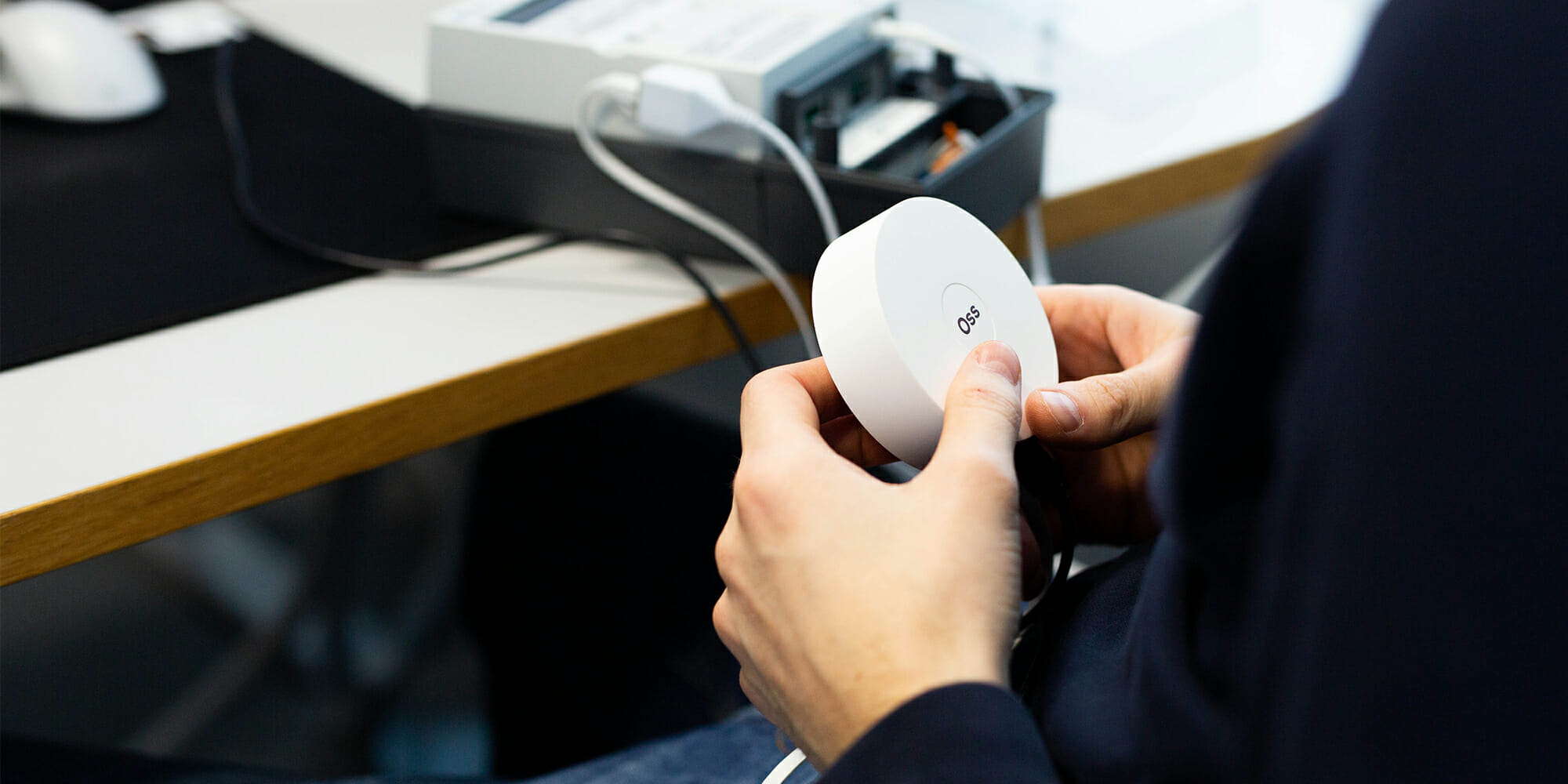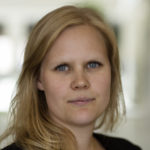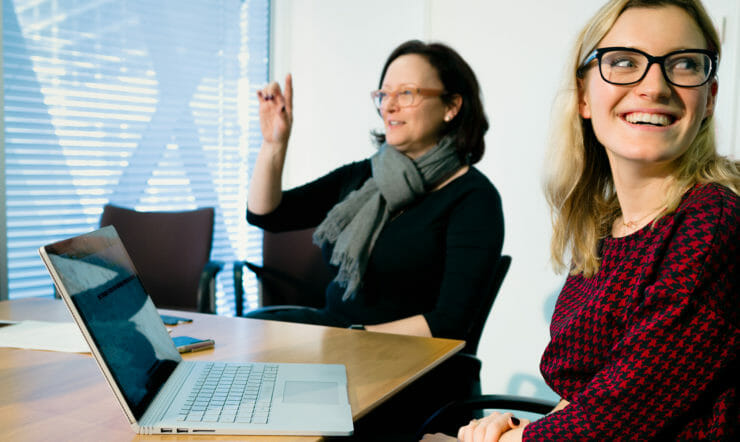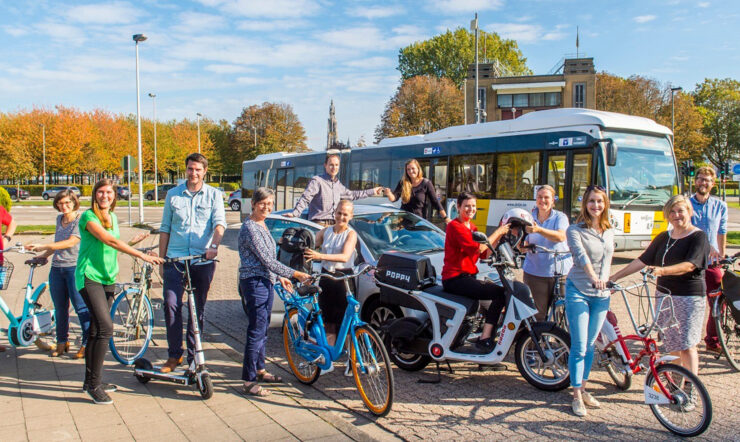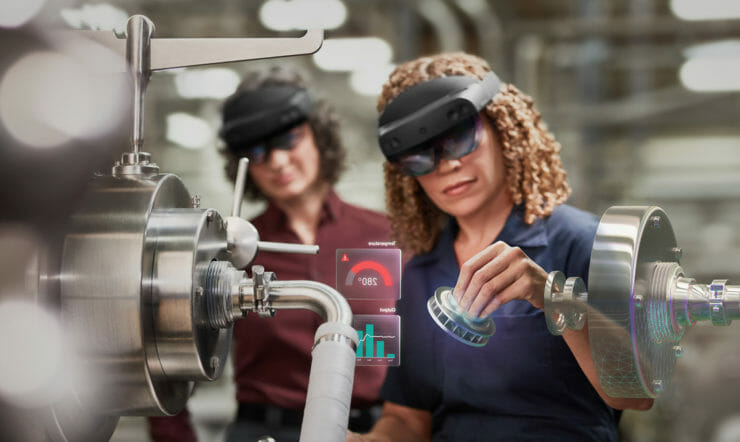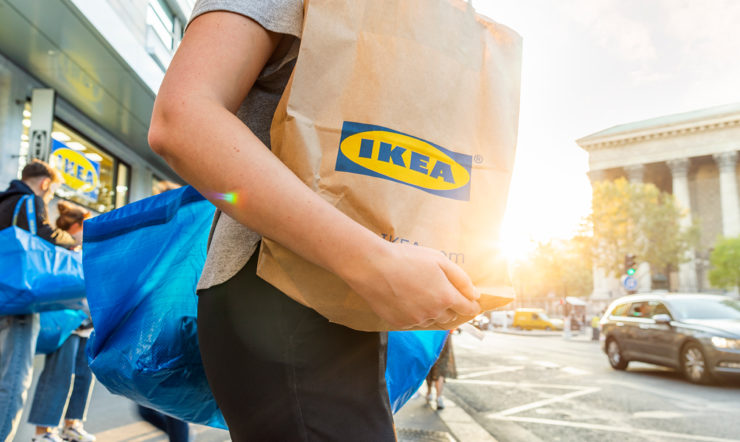“The greenest energy is the one you don’t use. Our product helps people use less energy by giving them a much more detailed overview of what they’re consuming.”
Erik Berg Solheim, CEO of Norwegian energy data specialist Oss Norge, is explaining how his company’s flagship product is helping contribute to a greener, more sustainable society in his home country.
“There is a green wave in Norway, as there is in many countries,” continues Solheim. “And that is driven by the desire to meet the needs and challenges of tomorrow. At Oss Norge, we want to be part of that drive. We want to be part of the solution, not the problem.”
The company’s plug-in-and-play smart meter adaptor ‘Oss-Brikken’ uses Microsoft Azure IoT technology to give energy users a detailed breakdown of how much electricity they’re using, including where and when they’re using it. The Oss-Brikken device is already helping businesses and direct customers to better monitor their energy usage and adapt their behaviour – and it is has only just been launched.
“Our hope is that we can have an impact beyond the Nordics,” says Solheim.
“If you can make a concept like this work in Norway, with the lowest energy prices in Europe and the greenest energy, then it should be able to work in other countries too.”
A small team with big ambitions
Norway is a remarkable country when it comes to energy. “We have high mountains with lots of water on top of them,” explains Solheim. “So something like 98% of our energy is hydroelectric and we use electricity to heat our houses. We’re quite unique in that regard, certainly in Europe.”
So when the Norwegian government passed legislation to make smart meters for electricity usage mandatory for all households from January 2019, it affected the entire country. By that point, Oss Norge had already been operational for 2 years, its small team working towards the launch of the Oss-Brikken smart meter adaptor.
“We are just 10 people in total,” says Solheim of the team at Oss Norge. “So even though we are owned 50% by Glitre Energi and 50% by Agder Energi, two of the biggest energy companies in Norway, we still have our own unique culture, sort of like a start-up.”
“It’s quite a relaxed working environment,” agrees Bent Eikmo, Technology Lead at Oss Norge. “Nobody wears suits and ties.”
“And we try to make sure we play at least one game of Mario Kart a day,” adds Solheim with a smile.
But working at Oss Norge is about more than just fun and games. “We’re trying to be agile, to listen and react fast when we get feedback on our solutions and the needs of our customers, in a way that a larger company isn’t able to,” says Solheim.
That is exactly what they have been doing since the launch of Oss-Brikken.

Encouraging businesses and consumers to use less energy
The Oss-Brikken device uses IoT technology and the power of the Azure cloud to provide information about electricity consumption to its users in real time, from anywhere.
Customers receive the device in the post and plug it into their smart meter. They can then immediately start to view data on the Oss app about how much energy is being used overall, live consumption, predictions for the day, the current price of electricity and an indication of whether that’s low or high compared to similar homes.
“We see big opportunities in the commercial markets, where there are big possibilities of saving energy and costs, benefiting both the environment and our customers’ bottom line,” explains Solheim. “The incentives for a commercial player to reduce their energy consumption are vast compared to the consumer market.”
“That’s partly because we have quite low electricity prices at the moment,” adds Eikmo. “But also because commercial users incur heavy cost for exceeding pre-defined usage thresholds during times of peak consumption, so having a view of everything they’re using and being able to contextualize that in real time can be a huge business win for our commercial customers – as well as protecting the national grid from usage spikes.”
And there are benefits for direct consumers too. “We have a couple of thousand private users,” says Solheim. “And we are growing our distribution to them by selling our technology through third parties, where our services are an add-on to their own services.”
Building the plane as they fly with Azure
A huge amount of data travels from the Oss devices to the Azure cloud, where it is stored and processed. “When the data is transmitted from the device, it enters Azure via the IoT Hub,” explains Eikmo. “Everything else takes place inside Azure. All the machine learning, all the storage, all the data-managing devices. Everything is in Azure.”
“Azure has been a crucial part of going from an idea to a prototype,” says Solheim. “And now it’s going from a prototype to a commercial solution, so the scalability of Azure allows us to do that.”
But the biggest advantage the company has found in using Azure is the flexibility it gives Oss to make changes along the way. “When you’re bringing new technology to the market, you’re going to make some choices that might have seemed very good at the time, but when you see them at scale, you realize they might not have been the best idea after all, either from a performance or a cost perspective.
“So one of the big gains of using Azure is our ability to make changes while we’re moving forward,” Solheim adds. “We can build the plane as we’re flying, so to speak.”
“It wouldn’t have been possible to build this solution in this timeframe and at this cost without Azure,” says Eikmo. “And you have so much functionality that is ready for us to use inside Azure, that it wouldn’t just be costly not to use it, but almost crazy to not to do so.”

From proof of concept to innovation
“We are now at the point where we have proved that our concept works,” says Solheim. “So now we are moving forward in introducing new services.”
To help expand the adoption of Oss-Brikken within the consumer market, the company is working together to integrate its data and analytics with smart house providers. “If you want to save on your electricity bill, you don’t want to turn things on and off manually. You want something that can do it for you. So that’s why we wanted to integrate with smart home systems,” explains Solheim.
But equally significant are the ways in which insurers can use data from the Oss device. By monitoring patterns of electricity usage over time, it is possible to see when there is a surge in the electricity supply that could potentially damage electrical appliances, or even cause household fires.
“We are hopeful that we’ll be able to see from the data signature something that is likely to happen before it actually does, “ says Solheim.
“Another thing we’re looking at is freezers,” adds Eikmo. “Because every year insurers in Norway pay out many millions of dollars because of damaged freezers. With our technology we can see in the data signature of a freezer if it is about to stop working.”
And with a burgeoning electric vehicle market in Norway, the opportunities to expand the company’s innovations further in the future are clear for all to see.
Vibb and the future of sustainable energy
Looking to the future, the small team at Oss Norge are as excited about the prospect of what they can achieve with Oss-Brikken as they are about the launch of a new company, which also has a sustainable business model at its core.
“Two weeks ago we launched Vibb,” says Solheim proudly. “It’s a business model where we don’t make profit on electricity consumption, but we have a slightly higher monthly fee for our services and access to the app. So not only do our customers pay the same price that we pay to provide their electricity, but we are actually incentivized to help them use as little as possible.
“It will be fascinating to see how it’s received because we’re going into a very established market with Vibb, but trying to do something different from the other players.
“Sustainability is at the core of what we would like to achieve with this company and by extension with Vibb and Oss. And while it might sound sensational, from our perspective, we don’t actually need our own sustainability plan. Because what we do is inherently sustainable and sustainability is one of the foundations the company is built on.”
Another of those foundations is the unique trust between the company and its customers. “We want to be the company that consumers actually trust in the electricity market, because trust is not a common word used in regards to electricity companies.”
“But with our prices, with our ambition to help you use less energy and give you full transparency over what you actually pay for, we hope to build a more trusted relationship between the consumer and the provider.”
“Building that trust and helping our customers to make a positive impact on the environment is very important for our company.”
To learn more about some of the architecture decisions that have defined Oss Norge’s journey to the cloud, read this interview with Bent Eikmo, CTO and Sebastien Didierjean, Data Scientist at Oss Norge: https://pulse.microsoft.com/nb-no/work-productivity-nb-no/na/fa1-recap-of-cloud-stories-from-norway-episode-2-azure-iot-and-machine-learning-in-oss-norge/


